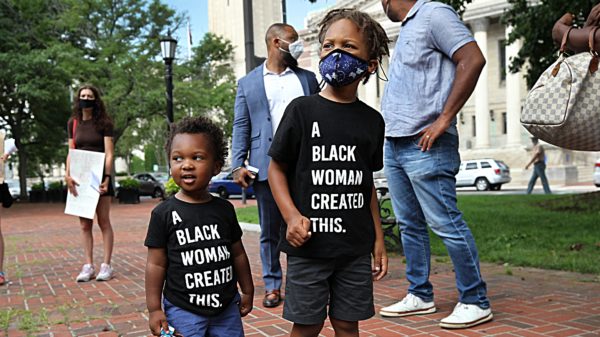Healthy Black American children are more than three times more likely to die after surgery than their white counterparts, according to a new study published this week.
The report was published in the medical journal Pediatrics on Monday. The research team looked at the outcomes of 172,549 children under age 17 who underwent an inpatient procedure between 2012 and 2017. The children were selected from the American College of Surgeons National Surgical Quality Improvement Program database and were assigned to the two lowest anesthetic risk categories.

According to the findings, relatively healthy Black children are 3.43 times more likely to die than similarly categorized white children within 30 days of inpatient surgeries. African-American children are also 27 percent more likely to have postoperative complications and an 8 percent higher chance of “severe adverse events after surgery.”
“Although mechanisms underlying racial disparity in postoperative complications and mortality remain largely speculative and hypothesis based, it is suggested in our study that complications do occur even in apparently healthy surgical patients and [African Americans] are at a distinct disadvantage,” the authors wrote.
Olubukola Nafiu, the lead author of the report, said the data challenges common medical assumptions about Black patients since preexisting conditions are often blamed for health disparities.
“That African American patients have poorer surgical outcomes compared to white patients has been established for a long time,” said Nafiu, a pediatric anesthesiologist and vice chair for Academic Affairs and Research at Nationwide Children’s Hospital, in Columbus, Ohio. “The prevailing assumption was that the disparities in outcomes were largely due to higher preoperative comorbidity burden among African American patients.”
Surgical complications are extremely rare and only 36 children in the sample died. However, the researchers noted, almost half of the deceased were Black. African-American children only made up 11 percent of the sample.
“Generally, we expect that healthier patients should do well with surgeries. Healthy kids have low complication rates,” Nafiu said. “The expectation should be that complication rates and/or mortality among healthy children won’t vary based on racial category — what we found is that they do.”
Similar studies done on African American adults pointed to systemic racism, which affects access to quality health care. Nafiu’s study did not examine diversity woes or implicit bias but other experts believe the findings are telling.
“Racism, not race, is a critical determinant of health,” Rhea Boyd, a California-based pediatrician, told CNN this week. “Racism makes people sick and contributes to premature death, even for our kids.”
“This is a great study, and it adds to a growing body of literature that calls for physicians to robustly evaluate the impacts that race has on health outcomes,” Stephanie White, associate dean for diversity and inclusion at the University of Kentucky, told Stat. “We can’t continue to tell these narratives without doing our own internal investigation.”


